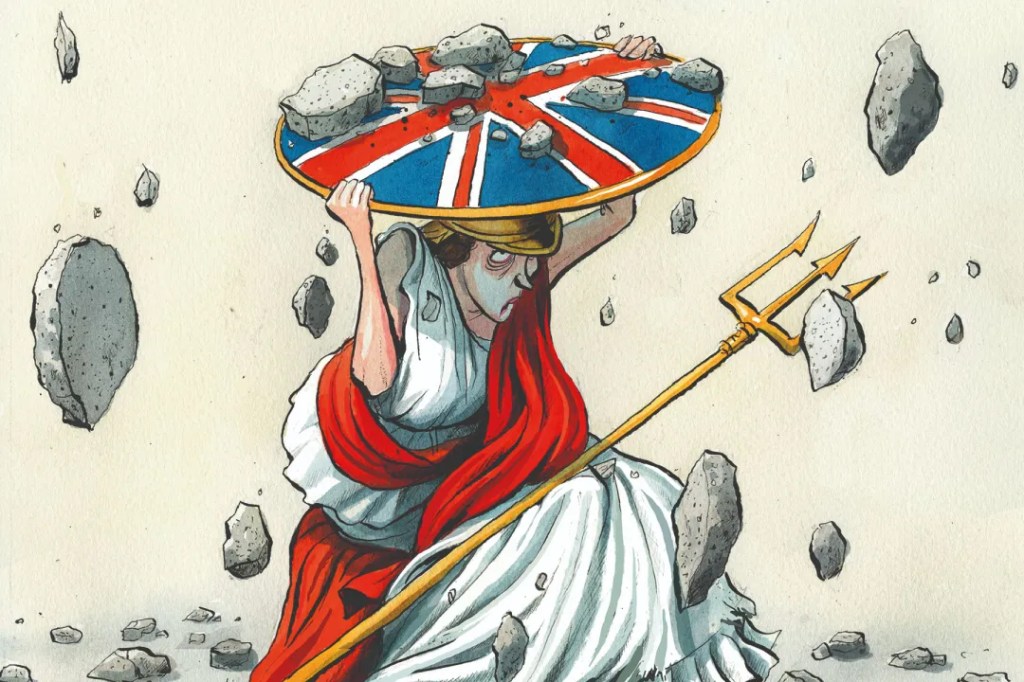On Friday night, I watched the news with a sick heart. I watched masked men in Sunderland throw bricks and beer cans at the police and chant racist slogans. I recognised the setting. I grew up in Sunderland: I spent 15 years of my life there and still have family there. I was in Keel Square, where the disorder began, in the early hours of New Year’s Day this year.
There is no justification for the violence we have seen in towns and cities across the country this week. To attribute it to the tragic murder of three young girls in Southport on 29 July is mistaken, misleading and grotesque, weaponising the devastating loss their families have suffered for an extremist political agenda. Of course we can follow the chain of events: within hours of the killings, false and almost certainly malicious disinformation was circulating on social media that the suspect was a Muslim who had arrived by boat last year and was being monitored by the security services.
As far as we know, none of that is true. The person charged is a 17-year-old from Banks in Lancashire, who will turn 18 this week. Axel Rudakubana was born in Cardiff to parents who immigrated from Rwanda in 2002, his father apparently a hard-working taxi driver who wanted to establish an online retail business. We do not know what religion, if any, the family observes.
None of this has mattered to the extremists who have taken to the streets. The unfounded suggestion that the suspect was a Muslim saw the mosque in Southport attacked, and the murders have been used as a springboard for arguments about mass immigration, multiculturalism and integration. It is not to deny the importance of those issues of public policy to say that they are neither reason nor justification for rioting.
Yet they are the motivation cited again and again not just by open racists and extremists but by fellow travellers like Reform UK leader Nigel Farage, whose contribution was to post a shamelessly, unforgivably inflammatory video on social media last Tuesday opining on the attacks.
It is very easy, especially if you are hyper-observant of politics and make a living out of commentating on public policy, to shake your head sadly at the way in which people have been misled and manipulated, encouraged into lawlessness by appeals to their basest anxieties and prejudices. It is more difficult to treat it as an abstract intellectual exercise when you recognise the streets and looted shopfronts, when your parents’ home is a mile from where the bottles and bricks were thrown, when the rhythms and cadences of the local speech are as familiar to you as the sound of your own heartbeat.
How do you process this? The violence was planned on a wide scale and extremist groups have been using social media to co-ordinate their so-called ‘protests’, with some of the rioters travelling to Sunderland purely to cause trouble. But they managed, somehow, to strike a chord with some locals, even only a few, and whip up racism and xenophobia as well as taking on the police directly and causing extensive damage to property and livelihoods.
How do you process this?
No group of people is perfect but I say with absolute conviction that Mackems – the people of Sunderland, to be distinguished from the Geordie population of Newcastle—are in general warm, kind, generous men and women who will offer a hand to anyone, even if they reserve the right to mock you affectionately as they help you up. The city has had hard decades since my childhood but there is a great deal of cause for optimism, with plenty of regeneration and economic development.
Of course there are those who feel excluded, disadvantaged and disenfranchised, and a smaller number who simply dislike and distrust those who are not like them. A very few of them have proven easy to manipulate, and in any northern town or city on a Friday night you will find a leaving of young men who can be tempted by the headrush of violent transgression and law-breaking.
It is a cliché, but it is true, that what happened on Friday did not represent the people of Sunderland. What spoke much more eloquently of the spirit that animates Mackems was the army of volunteers who made their way to the city centre on Saturday morning to help clear the streets, sweep up the broken glass and restore a semblance of order where there had been such inexcusable violence and hatred hours before.
I hope the violence has subsided for now, in Sunderland at least, and I am proud of the quiet dedication of the men and women who condemned the lawlessness that came among them. The message has to be clear: we can debate policy on immigration, communities and integration, but the moment you choose violence, you forfeit your part in the conversation. Friday’s rioting was the manipulation of unhappiness by bad actors, and as such it was unacceptable. With the best will in the world, I hope not to see my home town on the news again for a while.








Comments